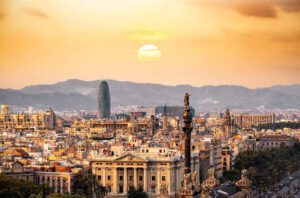Sicily, the largest island in the Mediterranean Sea, is a place of immense historical, cultural, and natural significance. Located off the southwestern coast of Italy, it has been a crossroads of various civilizations over millennia. From ancient Greek colonists and Roman rulers to Arab conquerors and Norman kings, Sicily’s rich tapestry of influences is evident in its architecture, language, and traditions. The island’s strategic location made it a coveted prize throughout history, leaving a legacy of cultural diversity that is still celebrated today.
One of the most notable features of Sicily is its archaeological heritage. The Valley of the Temples in Agrigento, a UNESCO World Heritage Site, boasts well-preserved ancient Greek ruins, including the impressive Temple of Concordia. Similarly, the ancient theater of Catania and the Roman mosaics of Piazza Armerina offer a glimpse into Sicily’s extensive past. The island’s cities and towns are dotted with remnants of its storied history, showcasing everything from Phoenician ruins to Byzantine churches.
Sicilian cuisine is another testament to the island’s diverse history. A delightful fusion of flavors, it incorporates elements from various cultures that have settled on the island. Dishes like arancini (stuffed rice balls), cannoli (sweet pastry filled with ricotta cheese), and caponata (a sweet and sour eggplant dish) reflect Sicily’s blend of Italian, Arab, and Spanish influences. The island’s fertile volcanic soil, particularly around Mount Etna, also contributes to its renowned wine production, offering a range of unique and flavorful varieties.
Geographically, Sicily is marked by its stunning landscapes. The island is home to Mount Etna, one of the most active volcanoes in the world, which dominates the eastern part of Sicily with its frequent eruptions and lush surrounding terrain. Additionally, Sicily features beautiful coastal areas, including the sandy beaches of Cefalù and the rugged cliffs of the Scala dei Turchi. The diverse landscape provides ample opportunities for outdoor activities such as hiking, swimming, and exploring natural parks.
The cultural vibrancy of Sicily extends beyond its historical and natural assets. The island hosts numerous festivals and events throughout the year, celebrating everything from religious traditions to local folklore. The colorful Carnival of Acireale and the Feast of Saint Agatha in Catania are just a few examples of how Sicilians honor their heritage. This rich cultural fabric, combined with its historical depth and natural beauty, makes Sicily a unique and fascinating destination for travelers and historians alike.












